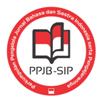Humor and Wisdom: A Critical Analysis of Binary Oppositionsin Tenas Effendy’s Pantun Kelakar
DOI:
https://doi.org/10.15294/hdgb5h69Abstract
This study examines the nuanced application of binary oppositions in Tenas Effendy's "Pantun Kelakar," a collection of Malay jesting couplets. Through rigorous qualitative analysis of selected pantuns, we explore how binary opposition functions as a sophisticated literary device to encapsulate complex cultural wisdom and philosophical concepts inherent in the Malay worldview. Our research reveals that Effendy's pantuns ingeniously employ contrasting perspectives to illuminate multifaceted aspects of Malay life, mainly focusing on marital dynamics and societal attitudes towards physical differences and disabilities. The study demonstrates how these pantuns serve not merely as entertainment but as powerful vehicles for cultural expression, moral instruction, and subtle social commentary. By juxtaposing opposing viewpoints on issues such as having a cleft-lipped wife, multiple spouses, a beautiful wife, a mute wife, or a disabled husband, the pantuns encourage critical reflection on societal norms and values. This research contributes to a deeper understanding of Malay literature and culture, showcasing how traditional poetic forms can be analyzed using modern literary theory to yield profound insights into cultural values and philosophical outlooks. Our findings highlight the pantun's vital role in preserving and transmitting cultural wisdom across generations while revealing the sophisticated literary techniques employed in Malay oral traditions.

